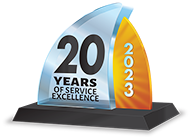How Do the DOT Drug Testing Rules Affect My Job?
If you work in a DOT-mandated safety-sensitive position, you need to be aware of the DOT drug testing rules and how they can affect your ability to perform your job. Congress enacted the testing rules in 1991 when they passed the Omnibus Transportation Employee Testing ACT to ensure that the transportation industry is alcohol and drug-free to protect the general public. As a result, all safety-sensitive employees must follow the DOT drug testing rules.
What is a DOT Safety-Sensitive Employee?
A DOT safety-sensitive employee is someone who works under a DOT-regulated mode and has the potential to affect other people’s safety. Some positions may involve immediate interactions with the general public, such as a bus driver, while others may interact by sharing the roadway, such as a trucker. Both positions can cause harm if a worker makes a mistake due to the influence of drugs or alcohol.
DOT modes where testing rules apply include:
- Aviation
- Maritime
- Roadways
- Transit
- Pipelines
- Railways
What are the DOT Drug Testing Rules?
The DOT drug testing rules are simple. Before employment, all DOT-mandated safety-sensitive employees must submit to and pass a drug and alcohol test. They are also subject to random drug and alcohol testing throughout their employment, after certain accidents, for reasonable suspicion, and as part of the return-to-duty process.
After a failed test, the employee must be evaluated by a Substance Abuse Professional (SAP) and go through the return-to-duty process which includes treatment and/or education, a follow-up evaluation, and a return-to-duty drug and/or alcohol test. This process can be daunting for someone who is out of work so time is of the essence. To quickly find a SAP in their area, employees should consider contacting a service agent, like SAP Referral Services (SRS).
Looking for a SAP in Your Area?
Get in touch with SAP Referral Services today to find a SAP in your area. Not only have they assisted over 25,000 employees in the return-to-duty process, and have a network of over 3,000 locations nationwide, but they can typically schedule you with a SAP in your area within 72 business hours.


